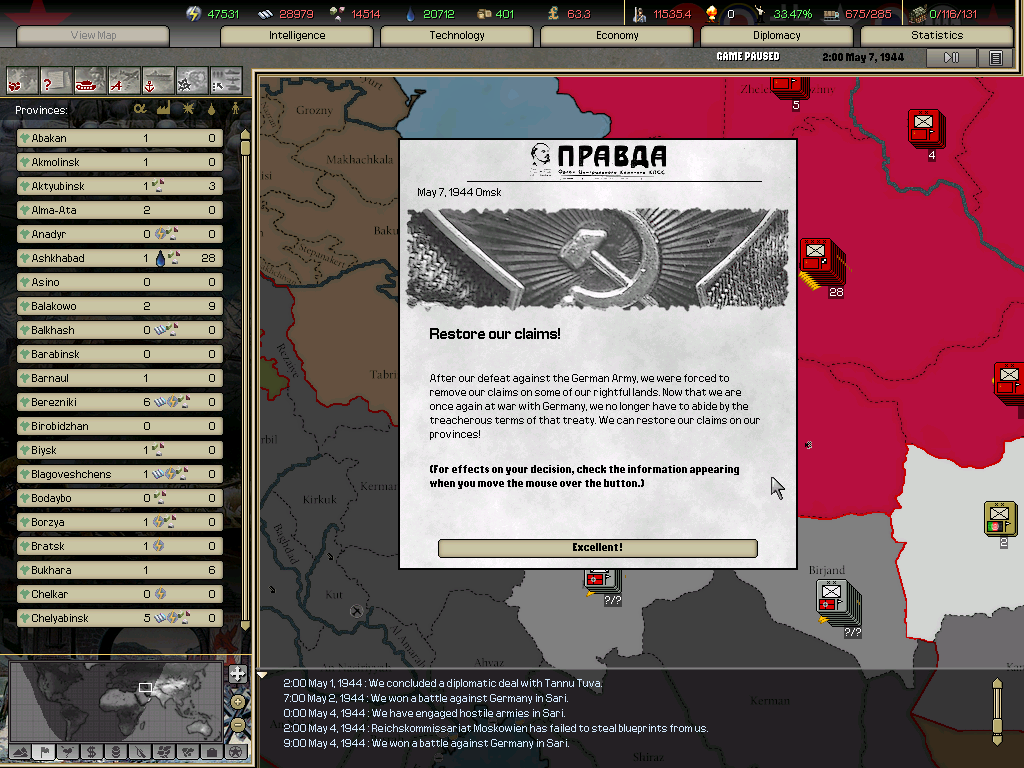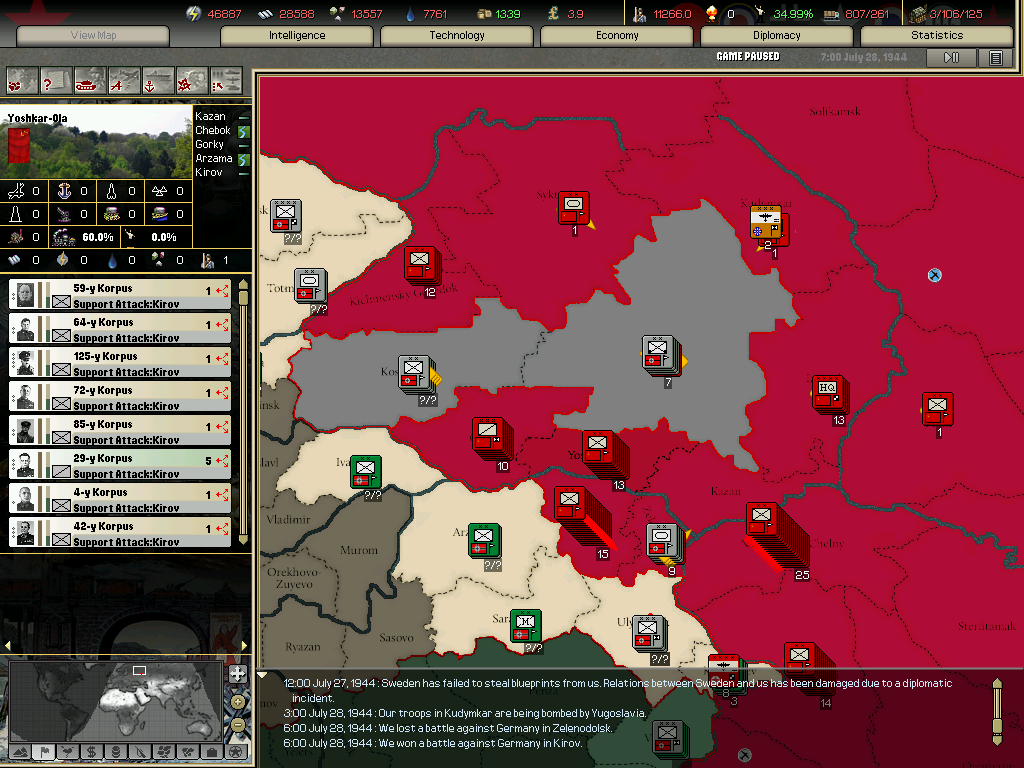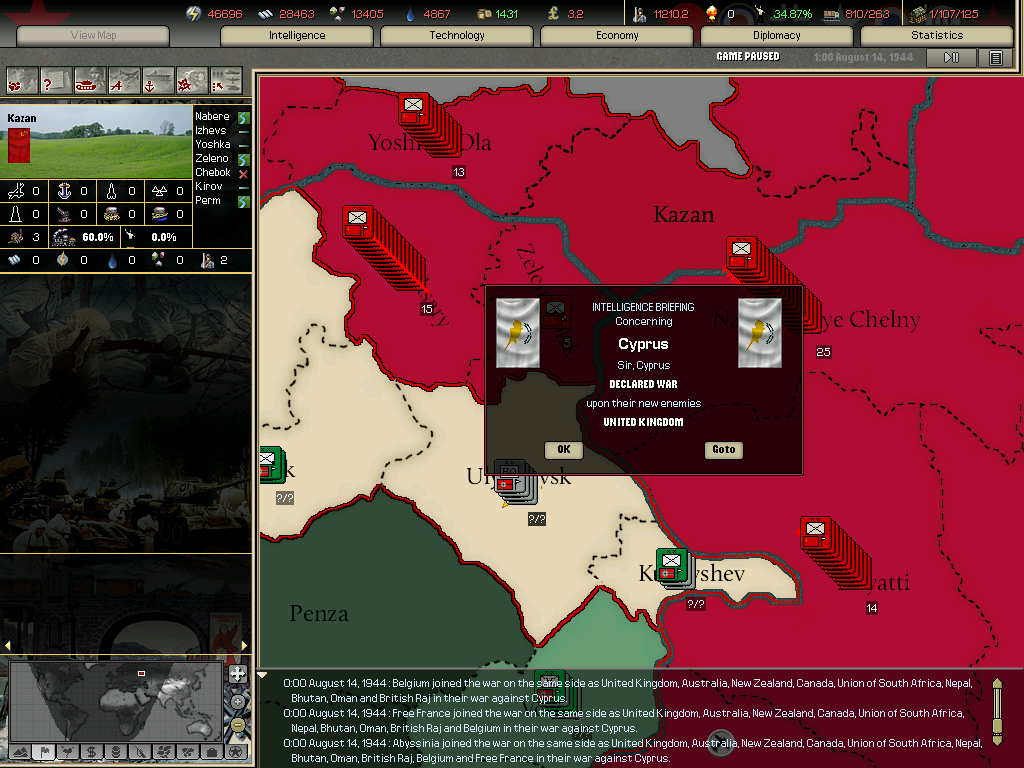Early 1944- The Giant Returns
In 1942, Germany dealt a death blow to the Allies. Africa and the Middle East have fallen to the might of their panzer divisions, and the allies have been driven off of mainland Europe. The only remaining threat is the British Empire, still holding their ground in India. France, Belgium, the Netherlands, all fell to the Germans within three years of the outbreak of war. The war in the west was lost. The east hadn't fared much better. The Soviet Union was unprepared for the German invasion, and were quickly routed. After the death of Stalin at the hands of a German spy, Germany set up autonomous regions, controlled by Nazi governors, in former Soviet territories west of the Ural Mountains. For two years, Europe was stuck in a stalemate. A peace that was not peace. Germany had no real threats-- or so they thought.
The chain of events that would reignite the Eastern Front began on December 23rd, 1943. Mikhail Kalinin and several other high-level political prisoners escaped prisons across Europe. One of Stalin's closest associates, Kalinin was captured by the Germans in Moscow, and sentenced to death. It is unknown how the prison breaks were coordinated, but rumors circulated that it was the work of Intelligence Minister Wilhelm Canaris. By the end of January, 1944, Kalinin had surfaced in Russia, retaking his position of Head of State in February. One by one, Kalinin rebuilt his cabinet, and reorganized the Red Army into a fighting force that stood a chance against the Germans. Rodion Maninovsky, who previously led the Soviet defense of the caucuses, was placed at their head.
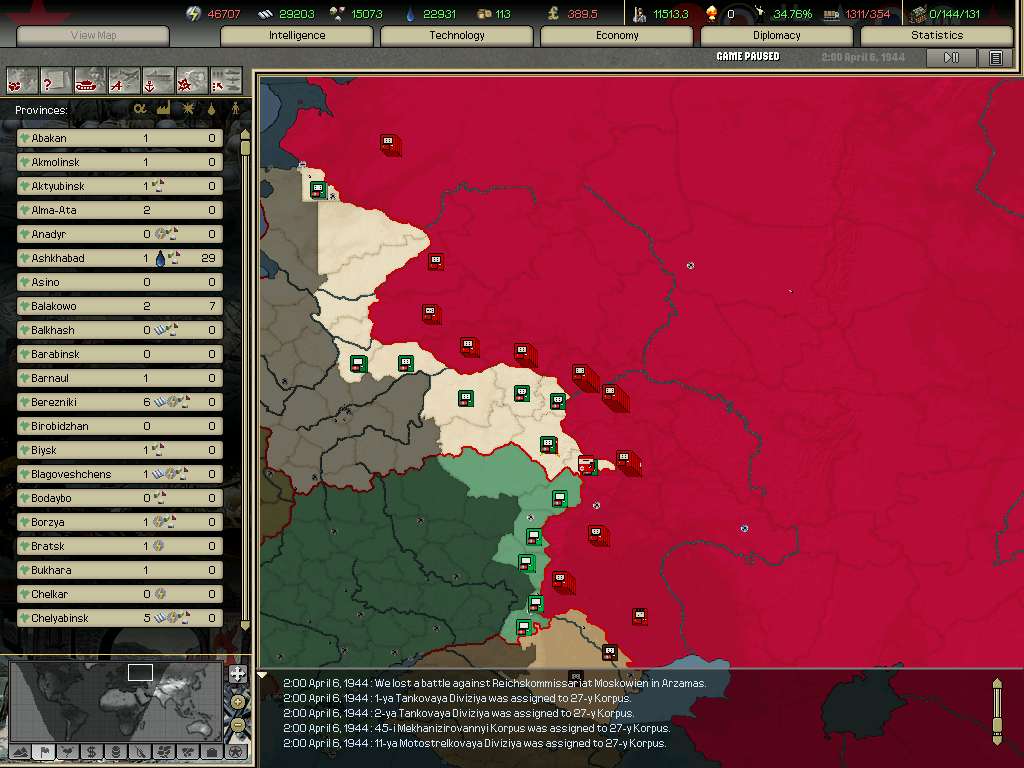
Instead of their previous strategy of a deep, yet decentralized defense that relied on attrition to wear down the Germans, the Red Army formed a defensive line across the border with nearly all their forces on the front lines. A second army group was placed along the border with Germany-controlled Iran. While the main Soviet force would fight a defensive war for the first few months, Army Group South would make a push all the way to Baghdad, hopefully liberating former Allied nations as they advance. After this assault gains momentum, Army Group West will begin to slowly move into captured territory. In April of 1944, Operation Red Sabre was set in motion. Germany launched several attacks along the Soviet border, but each met unexpected resistance and was repelled. Army Group West was not going to budge. Things in the south were an even more resounding success.
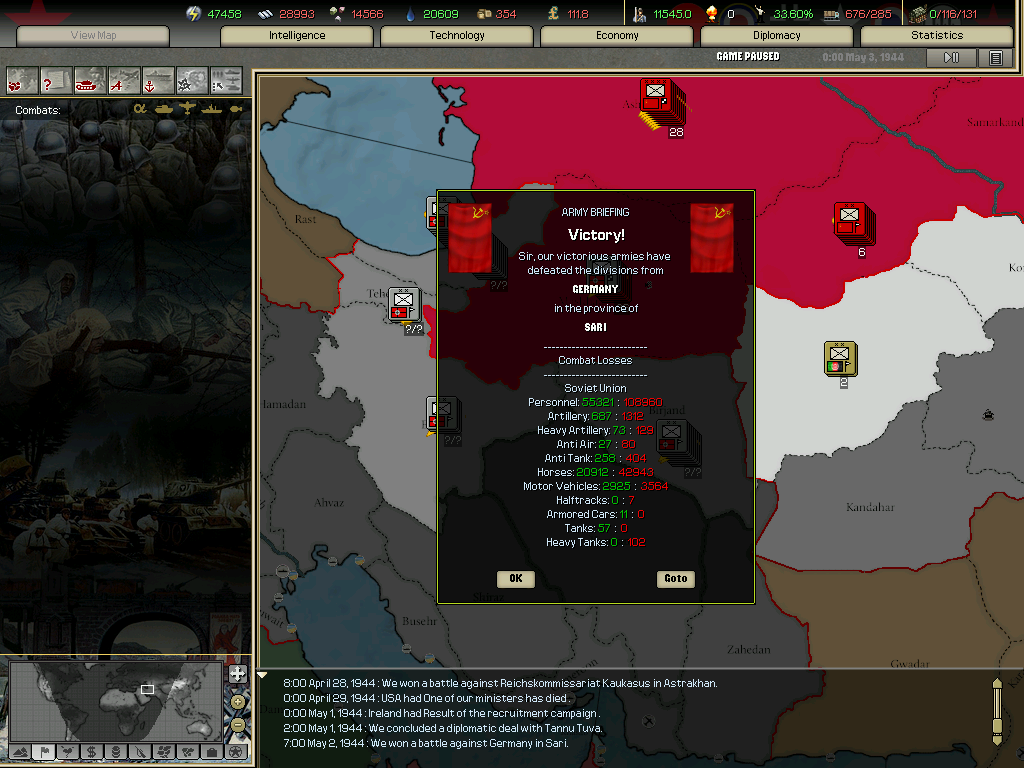
In the first major battle of the campaign, the Soviets killed more Germans than they did during their failed defense of Moscow in 1941. Germany, for the first time since the 1940, had been put on the defensive.
In 1942, Germany dealt a death blow to the Allies. Africa and the Middle East have fallen to the might of their panzer divisions, and the allies have been driven off of mainland Europe. The only remaining threat is the British Empire, still holding their ground in India. France, Belgium, the Netherlands, all fell to the Germans within three years of the outbreak of war. The war in the west was lost. The east hadn't fared much better. The Soviet Union was unprepared for the German invasion, and were quickly routed. After the death of Stalin at the hands of a German spy, Germany set up autonomous regions, controlled by Nazi governors, in former Soviet territories west of the Ural Mountains. For two years, Europe was stuck in a stalemate. A peace that was not peace. Germany had no real threats-- or so they thought.
The chain of events that would reignite the Eastern Front began on December 23rd, 1943. Mikhail Kalinin and several other high-level political prisoners escaped prisons across Europe. One of Stalin's closest associates, Kalinin was captured by the Germans in Moscow, and sentenced to death. It is unknown how the prison breaks were coordinated, but rumors circulated that it was the work of Intelligence Minister Wilhelm Canaris. By the end of January, 1944, Kalinin had surfaced in Russia, retaking his position of Head of State in February. One by one, Kalinin rebuilt his cabinet, and reorganized the Red Army into a fighting force that stood a chance against the Germans. Rodion Maninovsky, who previously led the Soviet defense of the caucuses, was placed at their head.

Instead of their previous strategy of a deep, yet decentralized defense that relied on attrition to wear down the Germans, the Red Army formed a defensive line across the border with nearly all their forces on the front lines. A second army group was placed along the border with Germany-controlled Iran. While the main Soviet force would fight a defensive war for the first few months, Army Group South would make a push all the way to Baghdad, hopefully liberating former Allied nations as they advance. After this assault gains momentum, Army Group West will begin to slowly move into captured territory. In April of 1944, Operation Red Sabre was set in motion. Germany launched several attacks along the Soviet border, but each met unexpected resistance and was repelled. Army Group West was not going to budge. Things in the south were an even more resounding success.

In the first major battle of the campaign, the Soviets killed more Germans than they did during their failed defense of Moscow in 1941. Germany, for the first time since the 1940, had been put on the defensive.


